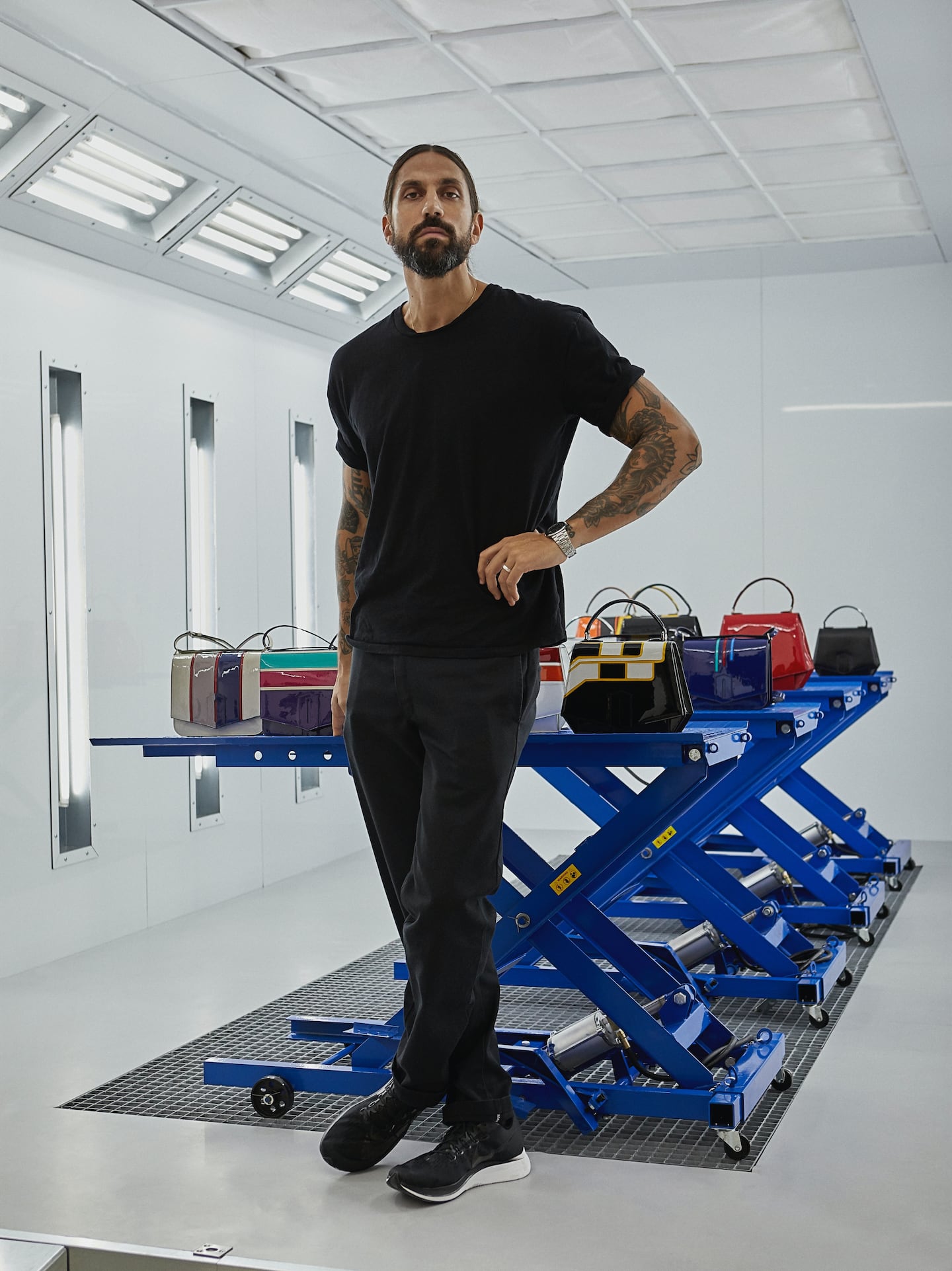
The Business of Fashion
Agenda-setting intelligence, analysis and advice for the global fashion community.

Agenda-setting intelligence, analysis and advice for the global fashion community.

Welcome to a new series examining the real-world triumphs and missteps of leading fashion and beauty executives.
STOCKHOLM, Sweden — Stockholm-based Ben Gorham founded the cult fragrance company Byredo in 2006 after his career as a professional basketball player came to an abrupt end. He went back to art school and, after a chance meeting with a perfumer, started Byredo as a creative project. "There are these defining moments in one's life that are out of our control — crossroads that allow you to make a decision," reflects Gorham. "I was a pro athlete, and when that fell apart, I was forced to completely rethink and reinvent. A lot of my drive and entrepreneurship comes from that: having the only thing you know taken away from you."
In the company of brands like Editions de Parfum Frédéric Malle and Le Labo, Byredo was part of a wave of fragrance indies offering something new and niche: tight, personal curations that focused on storytelling and artisanal quality. Early hits like Gypsy Water and Rose Noir competed with the department store usual suspects for the first time, disrupting, and ultimately changing, the £39 million global fragrance market.
Best Decision: Grow the Business Slowly
ADVERTISEMENT
Gorham credits Byredo’s early and prolonged success on pacing himself, with an eye on quality and meticulous brand-building. “One of the best conscious decisions I made in the beginning was to grow the business slowly, to always consider the long game,” he says. “Possibilities will always present themselves and most of the mistakes I observe in the market are based on short-term decisions. I aspire to brands like Hermès and a world of timeless luxury; that was a big part of the DNA I was trying to create. I was scared that if it peaked too fast it would become a moment — that was the opposite of what I was trying to create.”
Ensuring the long-term viability of the brand has meant a steady, unwavering belief in the original vision. “At the time we launched, it was an industry very much controlled by marketing,” recalls Gorham. “I had nothing beyond what I felt was an authentic, personal approach. I remember people asking, 'what’s the sound-bite, the kicker?' I felt as long as I kept the honesty and truth, I didn’t need the marketing. Striving to be unique is extremely difficult when you try to create a commercial vehicle in an existing marketplace on a global scale.”
Giving himself a certain amount of distance — both geographically and psychically — to create a brand within his own universe and at his own speed, has been key to sustainability, says Gorham. “I live in Stockholm and it allowed me a level of isolation that helped,” he says. “Taking our time, focusing on that idea of quality in every sense has been one of my best decisions. I look at the numbers of Kylie Cosmetics — it’s mind-blowing when you look at the sheer volume of things, but it doesn’t speak to a long game.”
His patience has certainly paid off. Manzanita Capital acquired a majority stake of Byredo in 2013; the brand is now available in 50 markets around the world, with freestanding flagship boutiques in Stockholm, London, Paris and New York. In 2015, Gorham added luxury leather goods to his product mix.
Biggest Mistake: Launching Too Soon
Even though Gorham built the business slowly, in retrospect, he says, he may have launched too early. “Even though in an external sense, in distribution, I grew the brand slowly, it was always full-speed ahead internally. I clearly remember not fully formulating the idea — I didn’t do enough homework; I just took the test,” he says. “What does it mean to sell to a store in Hong Kong, what can go wrong and how much time will you have to spend fixing it? When you’re catching up and running a business, you’re on the clock, and that may compromise quality. That was learning-by-doing and at times very costly.”
It all comes back, says Gorham, to finding the proper pace: figuring out what the brand is ready for, and when. “This idea of being global and competing with the Chanels and Hermèses… I hugely underestimated the complexities of doing business in a global sense,” he says. “You gain a lot of respect for the idea of 'global' and what it means in relationship to culture, language, logistics, distribution, legal. It’s no joke.“
Additional reporting by Kati Chitrakorn.
Related Articles:
[ The Creative Class | Ben Gorham, PerfumerOpens in new window ]
[ Byredo to Open London TownhouseOpens in new window ]
[ Designer Fragrances Take Cues from the Growing 'Niche' MarketOpens in new window ]
This month, BoF Careers provides essential sector insights to help beauty professionals decode the industry’s creative landscape.
The skincare-to-smoothie pipeline arrives.
Puig and Space NK are cashing in on their ability to tap the growth of hot new products, while L’Occitane, Olaplex and The Estée Lauder Companies are discovering how quickly the shine can come off even the biggest brands.
Demand for the drugs has proven insatiable. Shortages have left patients already on the medications searching for their next dose and stymied new starters.